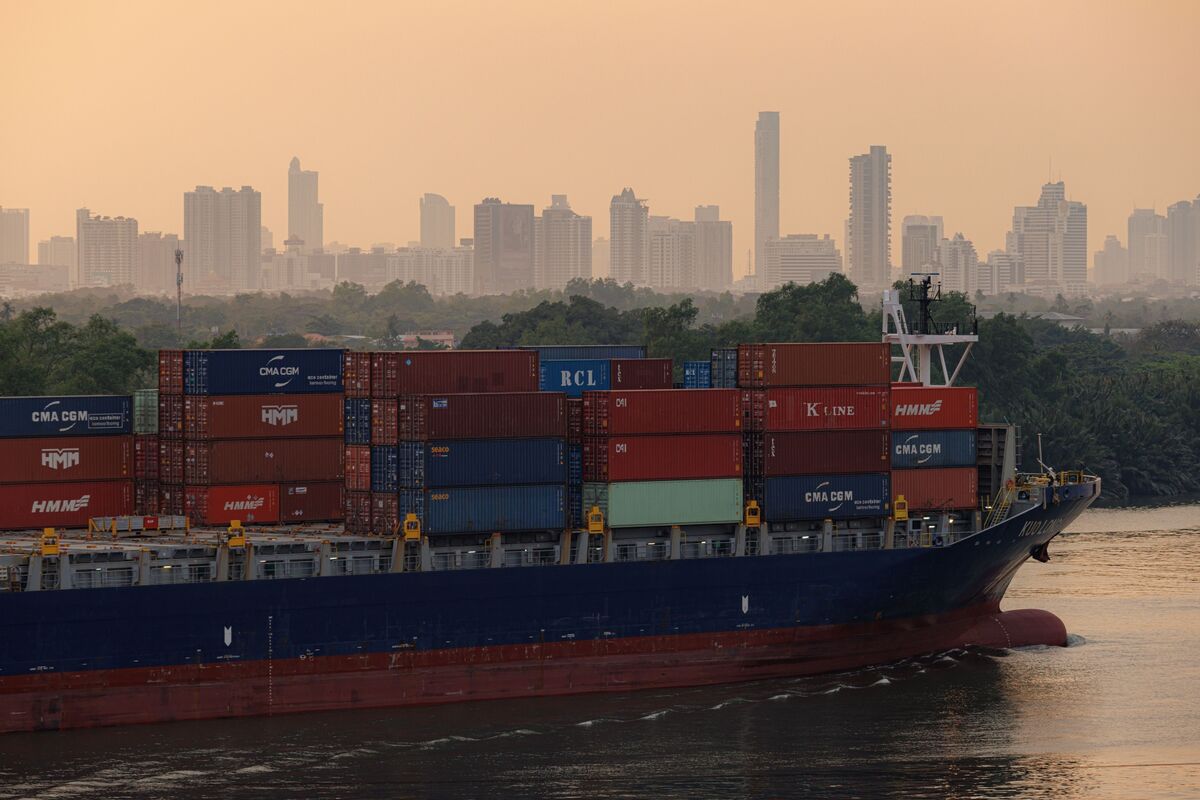Thailand's Economic Fight: Opposition's Tariff Response
Editor’s Note: Thailand's political opposition has unveiled a new tariff strategy, sparking debate about its economic implications. This article analyzes the proposal's potential impact.
Why This Matters
Thailand's economy, a key player in Southeast Asia, faces significant headwinds. Global inflation, supply chain disruptions, and fluctuating tourism numbers all contribute to economic uncertainty. The opposition's proposed tariff adjustments are a direct response to these challenges, promising to protect domestic industries while potentially impacting international trade relations. This article examines the key aspects of the proposed tariffs, analyzing their potential benefits and drawbacks for Thailand's economic landscape. Understanding this debate is crucial for anyone invested in or interested in the future of the Thai economy and its global standing.
Key Takeaways
| Takeaway | Description |
|---|---|
| Increased Protectionism | The proposed tariffs aim to shield Thai industries from foreign competition. |
| Potential Inflation Risk | Higher tariffs could lead to increased prices for consumers. |
| Retaliatory Measures | International trade partners may respond with their own tariffs. |
| Job Creation Potential | Protected industries might see job growth. |
| Economic Uncertainty | The impact remains uncertain and depends on various economic factors. |
Thailand's Economic Fight: Opposition's Tariff Response
The Thai opposition's newly announced tariff strategy is shaking up the country's economic discourse. The proposal, centered around increasing tariffs on specific imported goods, aims to bolster domestic industries struggling under the weight of global economic pressures. This move, however, is not without controversy, sparking debates about its potential impact on inflation, international trade relationships, and the overall health of the Thai economy.
Key Aspects of the Proposed Tariffs
The opposition's plan focuses on several key sectors, including:
- Agriculture: Increased tariffs on imported agricultural products to support local farmers.
- Manufacturing: Higher tariffs on certain manufactured goods to protect domestic factories and jobs.
- Energy: Potential adjustments to tariffs on imported energy resources to improve energy security.
Detailed Analysis of the Proposed Tariffs
The effectiveness and consequences of this strategy are complex and multifaceted. While proponents argue the tariffs will safeguard Thai jobs and boost domestic production, critics worry about the potential for retaliatory tariffs from trading partners, leading to a trade war and harming export-oriented sectors. Increased prices for consumers due to reduced import competition are another significant concern. A thorough cost-benefit analysis, considering both short-term and long-term effects, is essential before implementation. Comparisons with similar tariff policies in other countries, and their outcomes, could also offer valuable insights.
Interactive Elements
Impact on Thai Consumers
The increased cost of imported goods due to higher tariffs will directly impact Thai consumers. This section examines the potential increase in prices for essential goods and how this could affect different income groups. We analyze the risk of increased inflation and explore potential mitigation strategies the government could adopt to cushion the blow on consumers. The summary will highlight the importance of balancing economic protectionism with the needs of the Thai population.
International Trade Relations
This section explores the potential ramifications of Thailand's tariff strategy on its relationships with major trading partners. We analyze the potential for retaliatory measures, and the possible implications for Thailand's export industries. We also examine the risk of a trade war and discuss potential avenues for diplomatic solutions. The summary connects these factors back to the overall economic stability of Thailand.
People Also Ask (NLP-Friendly Answers)
Q1: What is the opposition's tariff proposal in Thailand?
A: The opposition proposes increasing tariffs on specific imported goods to protect domestic industries and create jobs.
Q2: Why is the opposition proposing these tariffs?
A: They aim to address the challenges facing Thai industries due to global economic pressures and competition from imported goods.
Q3: How could these tariffs benefit Thailand?
A: Potentially, they could create jobs, boost domestic production, and enhance energy security.
Q4: What are the potential downsides of the tariff proposal?
A: Higher prices for consumers, potential retaliatory tariffs from other countries, and a risk of decreased international trade.
Q5: What are the next steps regarding the tariff proposal?
A: The proposal will likely be subject to further debate and discussion among policymakers, economists, and stakeholders before any implementation.
Practical Tips for Understanding Thailand's Economic Future
This section offers actionable steps for staying informed about the evolving economic situation in Thailand.
Tips:
- Follow reputable news sources: Stay updated on economic developments through trusted media outlets.
- Analyze economic indicators: Track key economic data such as inflation rates, GDP growth, and trade balances.
- Consult expert opinions: Read analysis from economists and financial experts.
- Engage in discussions: Participate in online forums and discussions to understand different perspectives.
- Support domestic businesses: Consider purchasing locally made products whenever possible.
- Diversify investments: Don't put all your eggs in one basket; diversify your investments to minimize risk.
- Monitor government policy: Keep informed about government actions and policies that could affect the economy.
- Learn about international trade: Understanding global trade dynamics helps interpret economic trends.
Summary: These tips empower you to navigate the complexities of Thailand's economic future.
Transition: Let's now summarize the key takeaways from our in-depth analysis.
Summary
Thailand's opposition's tariff proposal presents a complex economic challenge. While aiming to protect domestic industries and create jobs, it also carries the risk of increased prices, trade wars, and economic instability. Careful consideration and a balanced approach are necessary to mitigate potential negative impacts.
Closing Message
The economic future of Thailand hangs in the balance. This debate over tariffs highlights the complexities of navigating global economic pressures while protecting national interests. How will Thailand strike a balance between protectionism and international cooperation? The answer will shape its economic trajectory for years to come.
Call to Action (CTA)
Stay informed! Subscribe to our newsletter for updates on Thailand's economic developments and insightful analysis. Share this article to help spread awareness about this crucial issue.
(Hreflang tags would be added here, based on the target languages for this article.)

